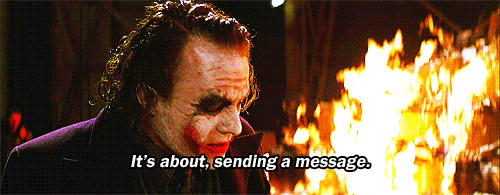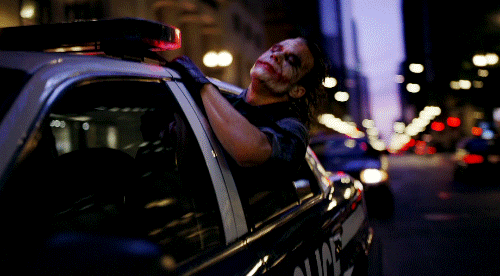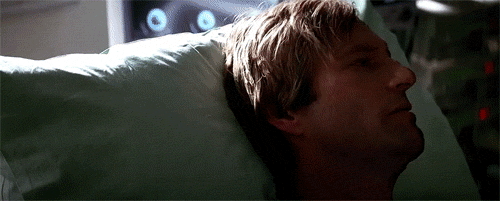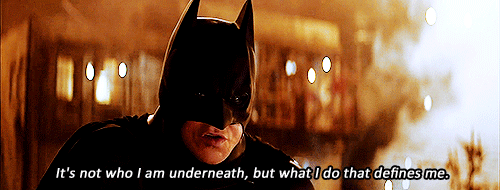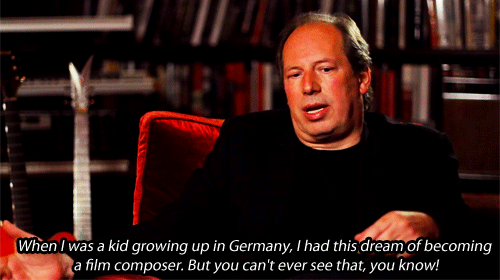Ever since its release 9 years ago back in 2008, Christopher Nolan’s “The Dark Knight” has been continuously hailed as the gold standard for Hollywood filmmaking and is still making waves today. Easily the best between its predecessor “Batman Begins” and its successor “The Dark Knight Rises”, “The Dark Knight” is a cinematic masterpiece when it comes to characterization, plot, suspense, music, cinematography, and pretty much anything else under the cinematic sun. But why can’t other movies get up to this level? What’s stopping them?
1. The story revolves around a unified theme and a message, and not on anything superficial
Superhero movies these days tend to focus on ordinary people who come across extraordinary abilities and to which their very presence invites conflict of seemingly insurmountable odds. The reason “The Dark Knight” works so well is because it's not a movie focused on our hero (or anti-hero), Batman. It’s a movie that focuses on the theme of the human condition; right from wrong, morality vs. immorality, light vs. dark, sanity vs. insanity, etc. By using such intangible themes that support the story, you end up with an utterly compelling and captivating narrative for the audience to sink their teeth into.
That being said, taking those themes and using them as the core of the movie is what modern filmmaking is currently lacking. So many films made today depend on CGI, action set pieces, jokes, and headlining actors to draw people in to see the film. Yet, the one thing that always takes a back seat is the overall theme or message and how it influences the characters rather than how the characters influence the theme or message. This is how you tell stories and this is how you get an audience to care about your story. The audience has to understand the theme, whether they want to or not.
2. Batman is a morally ambiguous protagonist
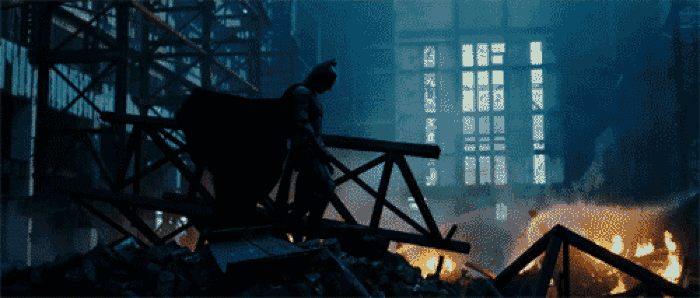
3. The villain is unlike anything we’ve seen
Many fans of this genre can agree that Heath Ledger’s portrayal of the Joker is an innovative, unprecedented, and incredibly captivating performance that earned Ledger a posthumous Oscar for Best Supporting Actor. As many know, Ledger redefined method acting by shutting himself up in a hotel room for three months, depriving himself of sleep to work on the character; how he would move, how he would talk and laugh, and how he would react to certain things. While this definitely shows in the final product, what is it about this particular villain that makes him so compelling and utterly terrifying, barring Ledger’s amazing performance? Well, the one thing that sets the Joker apart from any other typical superhero villain is that the Joker has no real endgame. As Alfred famously puts it, “Some men just want to watch the world burn.” Because of this line, people assume that the Joker’s actions are completely random, but this isn’t the case. The Joker delights in seeing how people react or behave in certain situations. He tests Batman, offering the ultimatum to either turn himself in or watch people die every day he doesn’t. In doing this, the Joker, whether he knows it or not, is testing Bruce Wayne’s personal sense of identity. Every plot by the Joker plays on secrets and manipulative identities; from ordering the bank robbers to shoot and betray each other, dressing as a cop to shoot the mayor, having hostages dressed as clowns, etc. The Joker also exploits the unseen immorality of the everyday city, ranting on how people’s complete desensitization to random acts of violence only inspires fear when it directly affects them. All of these qualities are what makes the Joker such a convincing and threatening adversary. Not because of how many people he will kill or how many buildings he will blow up, but how he threatens to unveil the immorality of a corrupt society by any means necessary.
4. The corruption of Harvey Dent
Harvey Dent, the White Knight of Gotham City, is Batman’s saving grace in that he hopes that Dent will one day render the Batman and vigilantism unnecessary altogether. When we first see Harvey Dent, he is essentially a Christ figure, promising the salvation of Gotham and the eradication of organized crime. He’s confident, suave, and through the help of a double-sided coin, operative in making his own luck. Dent’s transition into becoming Two-Face is shown early on through cracks in the foundation of the character. Dent, like Batman, is forced to take immoral actions to achieve, what he believes, is a moral result. The minute he falsely assumes the identity of the Batman, we see how much this identity plays into the actions of certain characters. The Joker, knowing perfectly well that Harvey Dent is not, in fact, the Batman, kidnaps and punished him for being something he is not. Dent’s descent into becoming a villain is primarily run on fear and revenge, all factors that are instilled into him by the Joker. The Joker makes an example of him: if he can make a seemingly good and incorruptible person like Harvey Dent commit terrible crimes, then there is no hope for anyone. In Dent’s words: “You either die a hero, or you live long enough to see yourself become the villain.”
5. Three-dimensional characters
When it comes to character depth and identity, the characters in this movie typically fall under three different categories: 1.) Their inner self, how they see themselves, 2.) Their outer self, how they present themselves to others, and 3.) How the world actually sees them. In the beginning, Bruce Wayne sees himself playing a role, inspiring fear and apathy in the hearts of Gotham’s criminals while in all actuality he wants nothing more to retire. The billionaire playboy persona throws people off the scent, as Lucius Fox utilizes this to dissuade Coleman Reese from thinking that Bruce is the Batman. This theme of identity makes a reappearance in relation to the Batman, the most notable example being that there are Batman imposters, including Harvey Dent, to which the Joker shows the world how dangerous it is to falsely assume an identity like the Batman. Harvey Dent is another prime example of this three-dimensional characterization. The confident persona he puts on in front of the public is why he becomes the final tipping point for the survival of Gotham and why Batman ultimately takes the blame for Dent’s actions. Gotham is so dependent on the actions and promises of one man that the idea that the same man could do something like commit murder would upset the balance of their own society. In all actuality, Dent is increasingly aware of his failures and insecurities when it comes to his private life, showing that everyone has two sides to their personality.
6. The music is written to reflect the characters.
The superhero movies of old typically had big and bombastic sounding scores that solely reflected the action on screen. Yet, what is sometimes lacking are recognizable and clear character themes. Now, there are exceptions like John Williams’ “Superman” theme and even Danny Elfman’s earlier “Batman” theme. Howevr, themes like these are only representative of the idea of the character, and not of the character themselves. If we take Batman’s theme, a simple two-note theme that is easily recognizable, it represents a clear message. In his Masterclass regarding this particular theme, Hans Zimmer justifies the use of this two-note theme because everything Batman/Bruce Wayne does is a reaction and a result of the death of his parents, a moment that he no doubt plays over and over in his mind and a moment in his life that he is clearly stuck in. Having a complex and symphonic theme for a character that never really evolves and that is so stuck in one moment in his life would be incongruent to what this character is really about.
Taking it even further, we have the Joker’s theme, which we hear at the very beginning of this film during the bank heist sequence. This one note, played on an increasingly manipulated electric cello, represents an unbelievable sense of tension and suspense. The theme starts off quiet, then slowly modulates getting higher and more intense, like the string could snap at any moment. This, to me, perfectly encapsulates what the Joker is all about. Anytime the Joker is on screen, it’s nearly impossible to predict what he’s going to do next. The character inspires terrifying suspense, and having a theme that never really resolves or releases its tension is perfectly suitable. Zimmer takes it even one step further and utilizes the theme so often that when the Joker isn’t even on screen, his presence is felt through the music. The idea that anything could happen at any given moment is what makes this theme terribly effective and some say, even unsettling to listen to.
This film is the perfect example of how cool camera tricks or visual and special effects play little part in a film’s success. What makes this story compelling is that, if you think about it, something like this could actually happen. All characters involved hold no superhuman powers; they are characters with motives, ideals, and capacities to do great and terrible things. Filmmakers: take notes.


